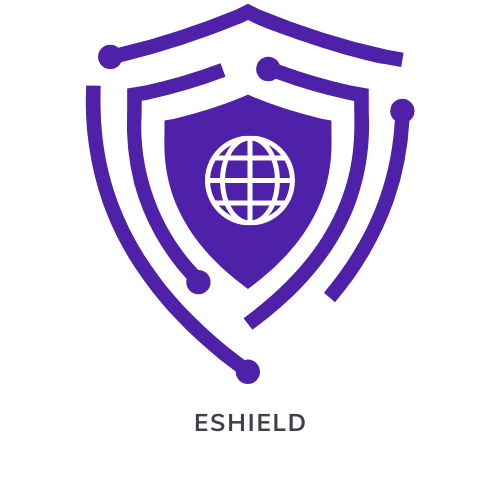What are the most in-demand cyber security jobs in the UAE?
1. Information Security Analyst:
An Information Security Analyst is responsible for protecting an organization’s computer systems and networks from cyber threats and security breaches. They assess potential security risks, implement security measures, monitor for security incidents, and respond to security breaches. Information Security Analysts also conduct security audits, develop security policies and procedures, and stay up-to-date on the latest security trends and technologies. They may work with IT teams, management, and other stakeholders to ensure that the organization’s information systems are secure and compliant with industry regulations.
2. Cyber Security Consultant:
A Cyber Security Consultant is a professional who specializes in safeguarding organizations’ digital assets from cyber threats. They assess the security measures in place, identify potential weaknesses, and recommend solutions to enhance the overall security posture. These consultants also help with incident response and recovery in the event of a cyber attack. They stay up-to-date on the latest trends in cyber threats and security technologies to provide the best possible protection for their clients.
3. Security Operations Center (SOC) Analyst:
A Security Operations Center (SOC) Analyst is responsible for monitoring, detecting, investigating, and responding to security incidents in an organization’s network and systems. This role involves continuously monitoring various security tools, analyzing alerts and logs, responding to incidents in real-time, and coordinating with other teams to mitigate and remediate security threats. SOC analysts also play a critical role in developing and implementing security measures, creating incident response plans, and conducting security assessments to identify vulnerabilities and threats. Overall, SOC analysts are essential in maintaining the security posture of an organization and protecting sensitive data from cyber threats.
4. Penetration Tester:
A penetration tester, also known as a penetration tester or ethical hacker, is a cybersecurity professional who is hired to simulate cyber attacks on computer systems, networks, or applications to identify vulnerabilities and weaknesses that malicious hackers could exploit. They use a variety of tools, techniques, and methodologies to test the security of an organization’s IT infrastructure and provide recommendations for improving its security posture. Penetration testers help organizations strengthen their defenses against real-world cyber threats and protect their sensitive data from unauthorized access or theft.
https://eshielditservices.com/vulnerability-assessment-penetration-testing-vapt
5. Incident Response Specialist:
An Incident Response Specialist is a cybersecurity professional who is responsible for rapidly responding to cybersecurity incidents within an organization. Their role involves assessing and mitigating the impact of security breaches, identifying the root cause of incidents, and implementing strategies to prevent similar incidents from occurring in the future. Incident Response Specialists work closely with various stakeholders including IT teams, legal departments, and management to coordinate response efforts and minimize any potential damage to the organization’s systems and data. They often also play a key role in forensic analysis, documenting incident details, and providing recommendations for improving overall security posture.
6. Cyber Security Architect:
A cyber security architect is responsible for designing, building, and managing the security infrastructure of an organization to protect its sensitive information and systems from cyber threats. They work closely with IT teams to develop security policies, procedures, and technologies to safeguard against cyber attacks. The role requires a deep understanding of cyber security principles, threat intelligence, and risk management. Additionally, they must stay up-to-date on the latest cyber threats and trends to ensure the organization’s security measures are effective and in compliance with industry standards and regulations.
7. Network Security Engineer:
A Network Security Engineer is responsible for designing, implementing, and managing security protocols to protect an organization’s network infrastructure from cyber threats and attacks. They work to identify and mitigate potential vulnerabilities, monitor network traffic for suspicious activities, and develop and maintain security policies and procedures. Additionally, they may be involved in incident response and investigation, as well as providing security awareness training to employees. This role requires a strong understanding of networking concepts, security technologies, and compliance regulations.
8. Chief Information Security Officer (CISO):
A Chief Information Security Officer (CISO) is a senior-level executive within an organization responsible for managing and overseeing the information security program. The CISO is typically in charge of developing and implementing security policies, procedures, and protocols to protect the organization’s information assets from cybersecurity threats. Additionally, the CISO is responsible for ensuring compliance with regulatory requirements and industry best practices, as well as leading incident response and security awareness training programs. The CISO often reports directly to the Chief Information Officer (CIO) or Chief Executive Officer (CEO) and plays a critical role in helping the organization stay ahead of evolving cyber threats.
9. Threat Intelligence Analyst:
A threat intelligence analyst is a cybersecurity professional responsible for monitoring, analyzing, and interpreting data on potential and current cyber threats. They gather information on new malware, vulnerabilities, and attack techniques to help organizations proactively defend against cyber threats. Threat intelligence analysts use various tools and techniques to identify and prioritize potential risks, and provide recommendations for mitigating those risks. They play a crucial role in helping organizations strengthen their security posture and safeguard their sensitive data against malicious cyber actors.
10. Security Compliance Analyst:
A Security Compliance Analyst is responsible for ensuring that an organization’s information security policies and procedures are compliant with industry regulations, laws, and best practices. This may involve conducting risk assessments, developing compliance strategies, and implementing security controls to protect sensitive data. The analyst also helps to monitor compliance efforts, investigate security incidents, and provide guidance on security-related issues to various stakeholders within the organization.
Steps to become a cybersecurity professional in Dubai
1. Obtain the necessary education:
To become a cybersecurity professional in Dubai, you will need to have a strong background in computer science, IT, or a related field. Consider obtaining a bachelor’s degree or higher in a relevant field
2. Obtain certifications:
Certifications can enhance your credibility as a cybersecurity professional and are often required by employers. Consider obtaining certifications such as Certified Information Systems Security Professional (CISSP), Certified Ethical Hacker (CEH), or Certified Information Security Manager (CISM).
3. Gain experience:
Employers in Dubai will likely require cybersecurity professionals to have practical experience in the field. Consider starting with entry-level positions in IT or cybersecurity to gain valuable experience.
4. Stay updated on industry trends:
The field of cybersecurity is constantly evolving, so it is important to stay updated on the latest trends and developments in the industry. Consider attending conferences, workshops, and training programs to stay current.
5. Network:
Networking is key to finding job opportunities in Dubai’s competitive cybersecurity industry. Attend industry events, join professional organizations, and connect with other cybersecurity professionals to expand your professional network.
6. Apply for jobs:
Once you have the necessary education, experience, certifications, and network connections, start applying for cybersecurity job opportunities in Dubai. Be sure to tailor your resume and cover letter to highlight your relevant experience and skills.
7. Consider specialized roles:
In Dubai’s growing cybersecurity industry, there are a variety of specialized roles you can consider, such as penetration tester, security analyst, incident responder, or security consultant. Consider pursuing additional training or certifications to specialize in a specific area of cybersecurity.
8. Stay ethical:
As a cybersecurity professional, it is important to adhere to ethical standards and laws related to cybersecurity. Make sure to always act in the best interest of your clients and follow ethical practices in your work.
What are the qualifications needed for a cyber security analyst position?
1. Bachelor’s degree in computer science, information technology, or a related field
2. Several years of experience in information security or a related field
3. Certifications such as Certified Information Systems Security Professional (CISSP), Certified Ethical Hacker (CEH), or Certified Information Security Manager (CISM)
4. Strong understanding of network security, cryptography, and risk management
5. Experience with incident response and security monitoring tools
6. Strong analytical and problem-solving skills
7. Excellent communication and teamwork abilities
8. Ability to stay current with emerging cyber security threats and technologies.
Specialized certifications for cyber security analysts
1. Certified Information Systems Security Professional (CISSP) –
This is considered one of the most prestigious certifications in the industry and covers a wide range of cybersecurity topics.
2. Certified Ethical Hacker (CEH) –
This certification focuses on penetration testing and ethical hacking techniques to identify vulnerabilities in systems.
3. Certified Incident Handler (GCIH) –
This certification focuses on detecting, responding to, and recovering from cybersecurity incidents.
4. Certified Information Security Manager (CISM) –
This certification focuses on information risk management, governance, and incident response.
5. Certified Cloud Security Professional (CCSP) –
This certification is for professionals working in cloud security and covers topics such as cloud architecture and design, data security, and compliance.
6. Offensive Security Certified Professional (OSCP) –
This certification focuses on practical cybersecurity skills through hands-on penetration testing exercises.
7. CompTIA Security+ –
This entry-level certification covers fundamental cybersecurity concepts and is a good starting point for those new to the field.
8. Certified Network Defense Architect (CNDA) –
This certification is similar to CEH but specifically focuses on defending against network-based attacks.
9. Cisco Certified CyberOps Associate –
This certification focuses on monitoring and detecting cybersecurity incidents using Cisco security products.
10. Certified Cyber Forensics Professional (CCFP) –
This certification focuses on investigating cybercrimes and collecting evidence for legal purposes.
https://eshielditservices.com/top-20-cybersecurity-certifications-with-the-highest-pay-in-2024
Where can one find information security jobs in the United Arab Emirates?
One can find information security jobs in the United Arab Emirates through various channels including:
1. Online job portals such as Bayt, Indeed, Naukri Gulf, LinkedIn, and GulfTalent.
2. Company websites of technology firms, cybersecurity companies, banks, financial institutions, and government agencies.
3. Networking events, career fairs, and industry conferences in the UAE.
4. Recruitment agencies specialized in IT and cybersecurity roles.
5. Professional organizations such as the UAE Computer Emergency Response Team (aeCERT) and the Information Systems Security Association (ISSA) UAE chapter.
6. Social media platforms and professional networking sites like Twitter, Facebook, and LinkedIn for job postings and opportunities.
7. Contacting headhunters, consultants, and cybersecurity experts in the UAE for potential job openings and advice.
Popular job portals for information security roles in the UAE
1. Bayt.com
2. NaukriGulf.com
3. GulfTalent.com
4. Indeed.ae
5. MonsterGulf.com
6. LinkedIn.com
7. Glassdoor.com
8. Gulfjobs.com
9. Dubizzle.com
10. Tanqeeb.com
Top companies offering information security positions
1. Google
2. Microsoft
3. Amazon
4. IBM
5. Cisco
6. Facebook
7. Apple
8. Dell
9. Oracle
10. Symantec
Average Range of Cyber Security Salary in UAE
The average range of Cyber Security salary in UAE is between AED 80,000 to AED 180,000 per year. However, this can vary depending on the level of experience, qualifications, and the specific company or organization. Senior Cyber security professionals with extensive experience and certifications can earn significantly higher salaries.
Top 10 Best Cybersecurity Companies In UAE 2024
1. eshield it services
2. Etisalat Digital
3. Paladion Networks
4. Help AG
5. CyberKnight Technologies
6. BAE Systems Applied Intelligence
7. Digital14
8. Symantec
9. Trend Micro
10. Kaspersky Lab
https://eshielditservices.com/security-companies-dubai/
FAQ
What are the most in-demand cyber security jobs in Dubai, UAE?
In Dubai, UAE, the most in-demand cyber security jobs include security engineer, cyber security analyst, security consultant, and network security engineer.
How can I find cyber security jobs in Abu Dhabi, UAE in 2024?
To find cyber security jobs in Abu Dhabi, UAE in 2024, you can search on job portals, company websites, and networking platforms specifically focusing on cyber security roles.
What qualifications are required for a senior security officer job in the United Arab Emirates?
For a senior security officer job in the United Arab Emirates, candidates usually need a bachelor’s degree in information security or related field, along with relevant certifications and extensive experience in network security.
How can I pursue a career as a cyber security intern in the UAE to gain hands-on experience?
To kickstart your career as a cyber security intern in the UAE, you can apply for internship programs at companies offering opportunities to work on cyber security projects, gaining valuable experience in the field.
https://eshielditservices.com/security-companies-dubai/
https://eshielditservices.com/top-20-cybersecurity-certifications-with-the-highest-pay-in-2024
https://eshielditservices.com/vulnerability-assessment-penetration-testing-vapt


